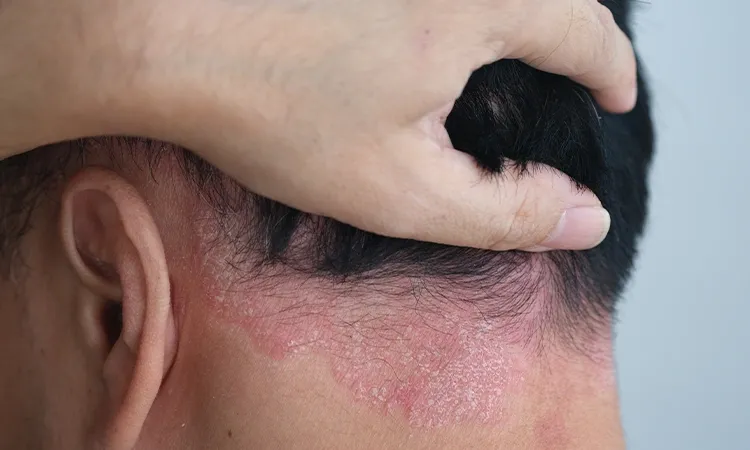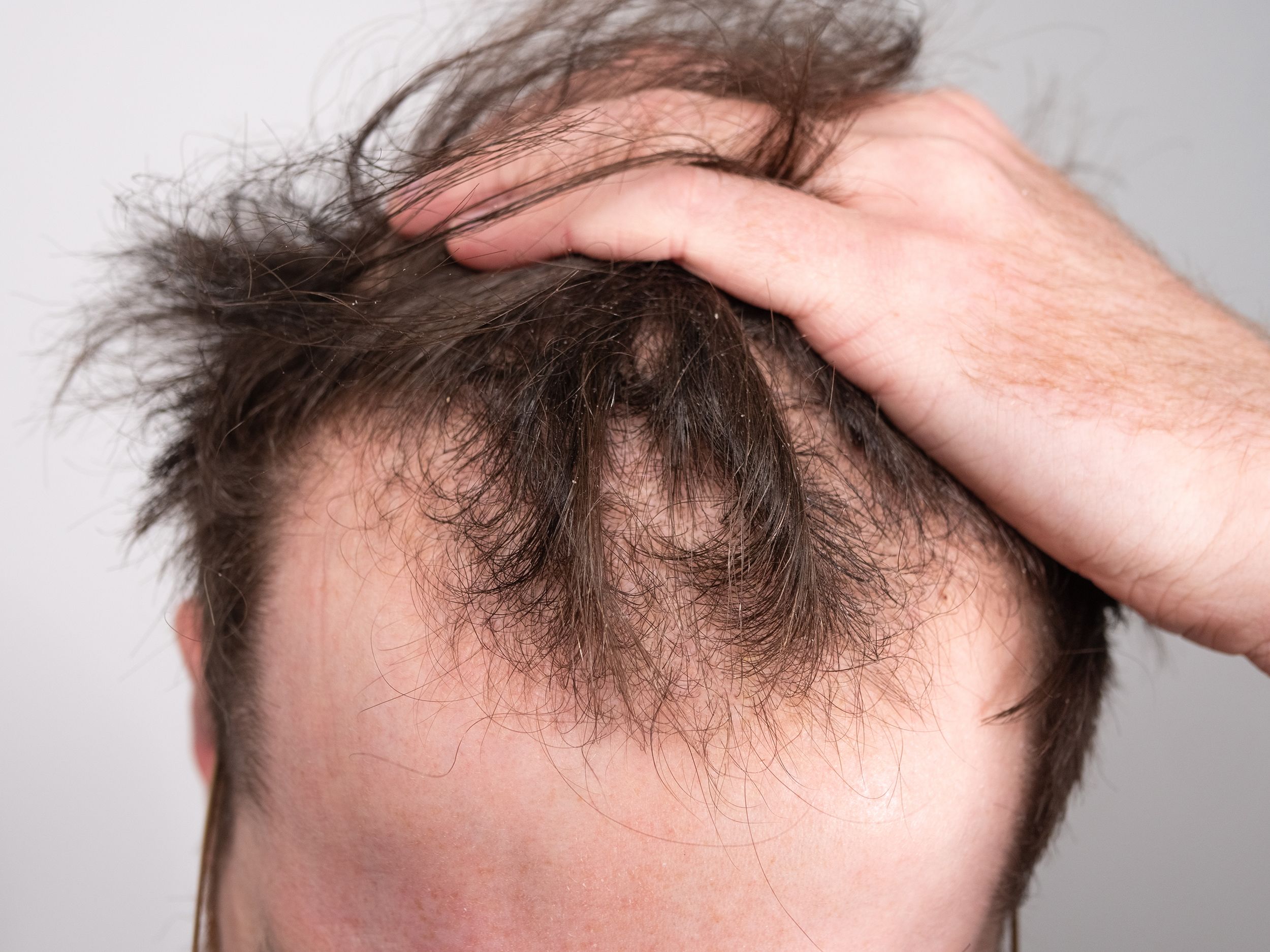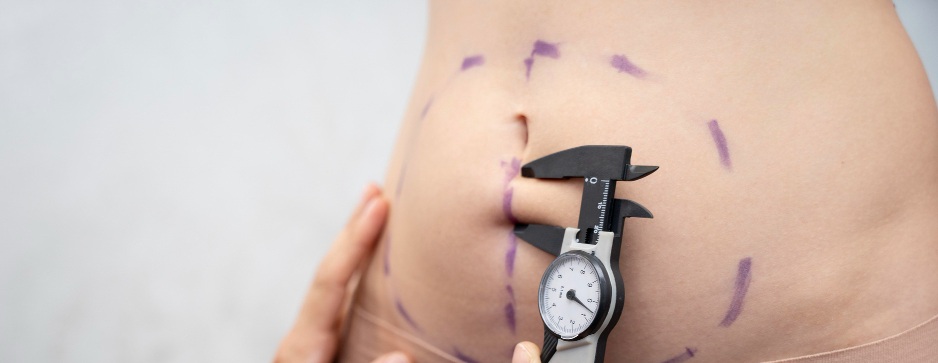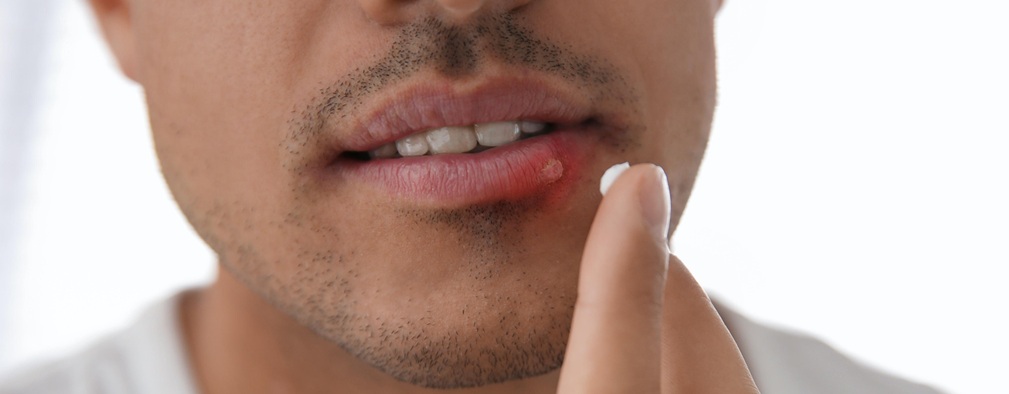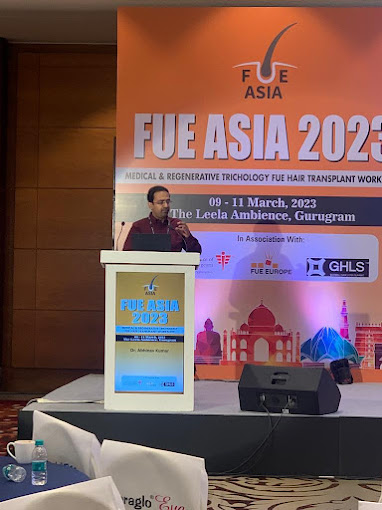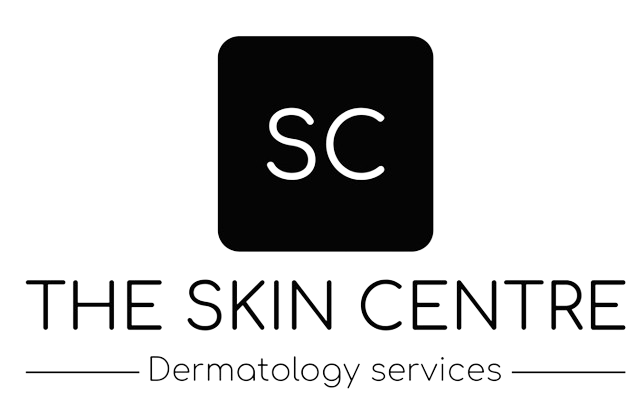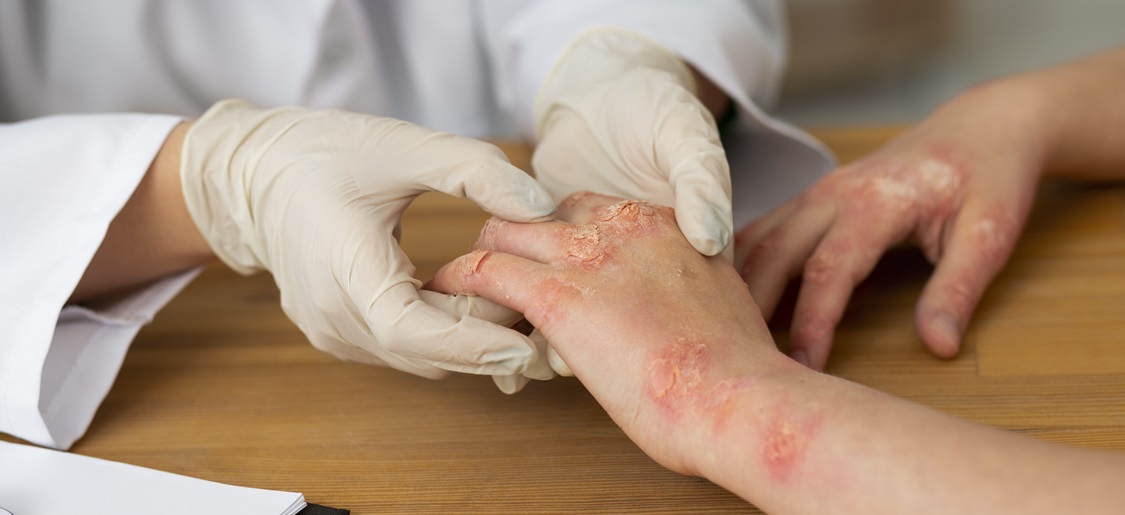
Handling a medication reaction: expert treatment at The Skin Center
Maintaining health in modern society depends on medications in great part. Medications can aid with pain management, infection managing, or long-term illness healing. They can also simplify life. Still, occasionally the body may respond negatively to particular medications. A drug reaction is this. These reactions might include modest rashes or more severe diseases capable of killing you.
Among the best skin clinics in Patna, The Skin Centre is here; we are adept in identifying and treating medication reactions. Our team's seasoned dermatologists are committed to provide every patient individualized treatment to target the indicators and causes of drug-related skin problems. No matter how severe the symptoms are or how irritating the skin is, we provide the best treatment options to guarantee speedy and safe healing of your skin.
This thorough guide will define medication reactions, their symptoms and causes, as well as how The Skin Centre, the top dermatologist center in Patna, might assist with these issues.
Describes an unfavorable medication reaction.
A drug reaction—also known as a drug allergy—can result from the body's immune system reacting to a medication. This reaction can be quite severe with swelling, blisters, and even problems breathing or as mild as an itching rash or a rash. The reaction could occur immediately upon drug use, or it might worsen over time—sometimes even weeks after beginning the drug.
Different forms of skin reactions to medications can be generally categorized into the following groups:
An allergic reaction results from the immune system believing a medication is harmful when it is not.
Responses unrelated to an allergy:
These occur when the body reacts to a medicine in response to another factor, such as dosage or interaction with other drugs. Individualized responses are rare and erratic reactions only observed in some individuals that defy patterns.
The Skin Center is a reputable skin clinic located in Patna that can effectively handle these symptoms. Our experts are fast at spotting and treating drug reactions.
Drug Reaction Indices and Symptoms:
Drug reactions may manifest themselves differently depending on the person and the drug. Among the most often occurring symptoms are these:
Rash:
On the skin, rash might manifest as welts, red dots, or pimples. Having the rash could be uncomfortable and irritating. For a medication reaction, for instance, itching is a common symptom and frequently accompanied by a rash.
You might swell, particularly around your lips, eyes, or cheeks, if you have an allergic reaction.
Raised, red, itchy bumps called hives can strike suddenly and vary in size. Drug effects can be so severe that skin starts to peel off or blisters result.
Fever:
Part of the body's defense mechanism, some medications can cause fever. Toughness Should you be experiencing a severe allergic reaction—anaphylaxis—you could find yourself unable to breathe. You should seek medical attention immediately.
See a doctor immediately if you or someone you know are experiencing any of these symptoms following a drug intake. The Skin Center's dermatologists are rather adept in identifying and managing drug responses. They will ensure that your circumstances are attended to with the best of care.
Why do people experience medication reactions?
A drug reaction is the result of the body or immune system rejecting a medication. Drugs can have negative effects for several different reasons:
Reactions brought on by allergies: Certain medications are seen by some as dangerous intruders by their immune systems mistakenly. The immune system then produces molecules like histamine. These present symptoms include rashes, itching, and swelling.
Drug Overdose or Dosage:
Sometimes a drug reaction results from too lengthy use of a substance or from overwhelming the body's systems.
Drug interactions:
Should you use more than one medication concurrently, their interactions can not be favorable and produce a reaction. This can be brought on by over-the-counter, prescription, and even herbal treatments.
Those who already have liver or renal illness, an autoimmune condition, or a history of drug allergies may be more prone to react poorly to a medication.
Kind of Drug:
Some medications are more prone than others to cause reactions. Often to blame are NSAIDs, anticonvulsants, medications like penicillin, and some chemotherapy treatments.
At The Skin Centre, we do comprehensive consultations to find out your medical history and work out potential causes of the drug reaction. This makes sure you receive the optimum treatment for your ailment.
How Drug Reactions Might Occur
The most often occurring skin reactions to medications are hives and rashes called urticaria. They could show up soon after beginning a new medicine and be itchy and uncomfortable. Rashes can seem distinct. They can be large and have fluid-filled lumps or they can be flat and red.
The skin diseases Stevens Johnson Syndrome (SJS) and toxic epidermal necrolysis (TEN) Some medications have extremely negative reactions that could potentially be fatal. Your skin boils, peels, and sheds all over from them. Should you neglect immediate medical attention for these disorders, they can rapidly worsen without it.
Certain medications, particularly hydralazine and procainamide, might lead to a syndrome resembling lupus caused by medicines. This disorder can lead to weariness, rashes, and joint pain.Usually, those experiencing drug rash develop exanthematous drug eruptions. The most often occurring indication is a broad red rash with either raised or flat patches. It resembles an outbreak of measles.
Certain medications can increase the skin's sensitivity to sunlight, which would cause rashes or burns should one be outdoors.
We know what kind of drug reaction someone is experiencing and what the best course of action is to reduce their symptoms and prevent new issues from arising.
Drug responses are treated in the Skin Center.
The degree of treatment for medication reactions mostly relies on their severity and the underlying causes. The top dermatologist in Patna is The Skin Center, thus we handle drug reactions as follows:
1. Stopping the medicine
The first and most crucial thing to address the reaction is to stop using the medication triggering it. Usually, the symptoms improve with time if the medicine is removed. Should the response be negative, however, extra actions could be required.
2. Treatments directed towards the skin
We could advise applying corticosteroid creams on the skin to lower swelling and irritation for minor medication reactions such hives or rashes. Calamine lotion or other calming lotions can also help to ease inflamed skin.
3. Pills to swallow orally
Antihistamines taken orally could be prescribed to lower swelling and itching in more severe cases. In a medication reaction including oedema or an immunological response, oral steroids could help reduce the symptoms.
4. Treatment meant to compromise immunity
Someone experiencing a severe medication reaction such as Stevens-Johnson Syndrome (SJS) or Toxic Epidermal Necrolysis (TEN) may have to remain in the hospital and receive rigorous immunosuppressive treatment to stop their immune system from overreacting and causing more damage.
5. Concern to Assist
Someone experiencing a severe reaction—especially one affecting other systems—may require supportive care to assist in managing fevers, discomfort, and other symptoms.
6. Aftercare
You should visit the doctor to ensure there are no long-term consequences and to check on the healing of your skin once you have therapy for the drug reaction. At The Skin Centre, we ensure your skin recovers quickly and gets back to its natural condition.
Why should you visit The Skin Center for treatment of a medication reaction?
You should see a trained dermatologist who can properly identify and treat the medication reaction you have. For this reason, The Skin Center is considered the best skin center in Patna for handling medication reactions:
Our dermatologists are seasoned experts in identifying and treating drug-induced skin reactions. We provide tailored treatment to ensure your face produces the greatest possible outcome.
To determine what caused your drug reaction and offer the best course of treatment, we spend some time learning about your medical background, drugs, and symptoms.
Medical and emergency therapies for all kinds of medication reactions—from mild ones to ones potentially fatal—are available here.
Patient-centered care holds that our priorities are our health and happiness. We attentively assist you to ensure your skin heals and that you have faith in the manner you are receiving treatment.
In the last instance
Drug reactions are rather harmful for your health and should be seen by experts right once. Early identification and treatment can make all the difference, whether the condition— Stevens Johnson Syndrome—which can kill you or a minor rash. Dedicated to providing you with the best treatment for drug reactions, The Skin Center is Patna's top skin center. Here to ensure that your skin heals fast and correctly there are board-certified dermatologists.
If you or someone you know are experiencing a drug response, do not wait for it to get worse. For excellent, compassionate treatment, schedule an appointment at The Skin Center, the top dermatology center in Patna today.
 Trending Services
Trending Services
We provide a wide range of services to help you with your skin and hair problems. Our doctors have helped thousands of patients to overcome difficult and unsightly skin conditions. Whether you suffer from sun damage, acne scars, wrinkles, leg veins or birthmarks, one of our providers will help find the right treatment.
